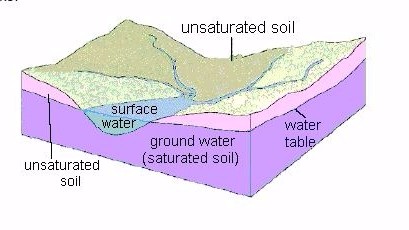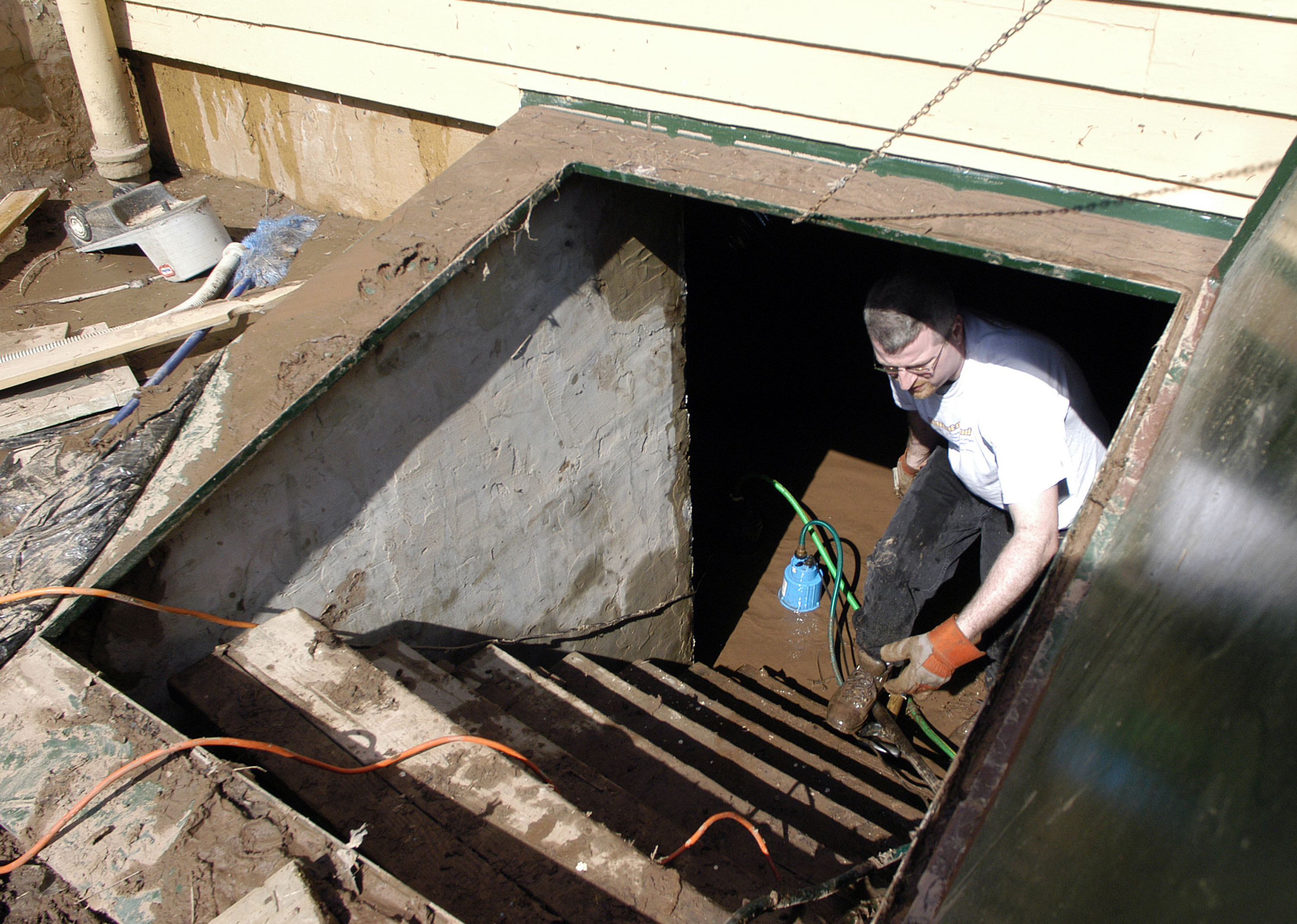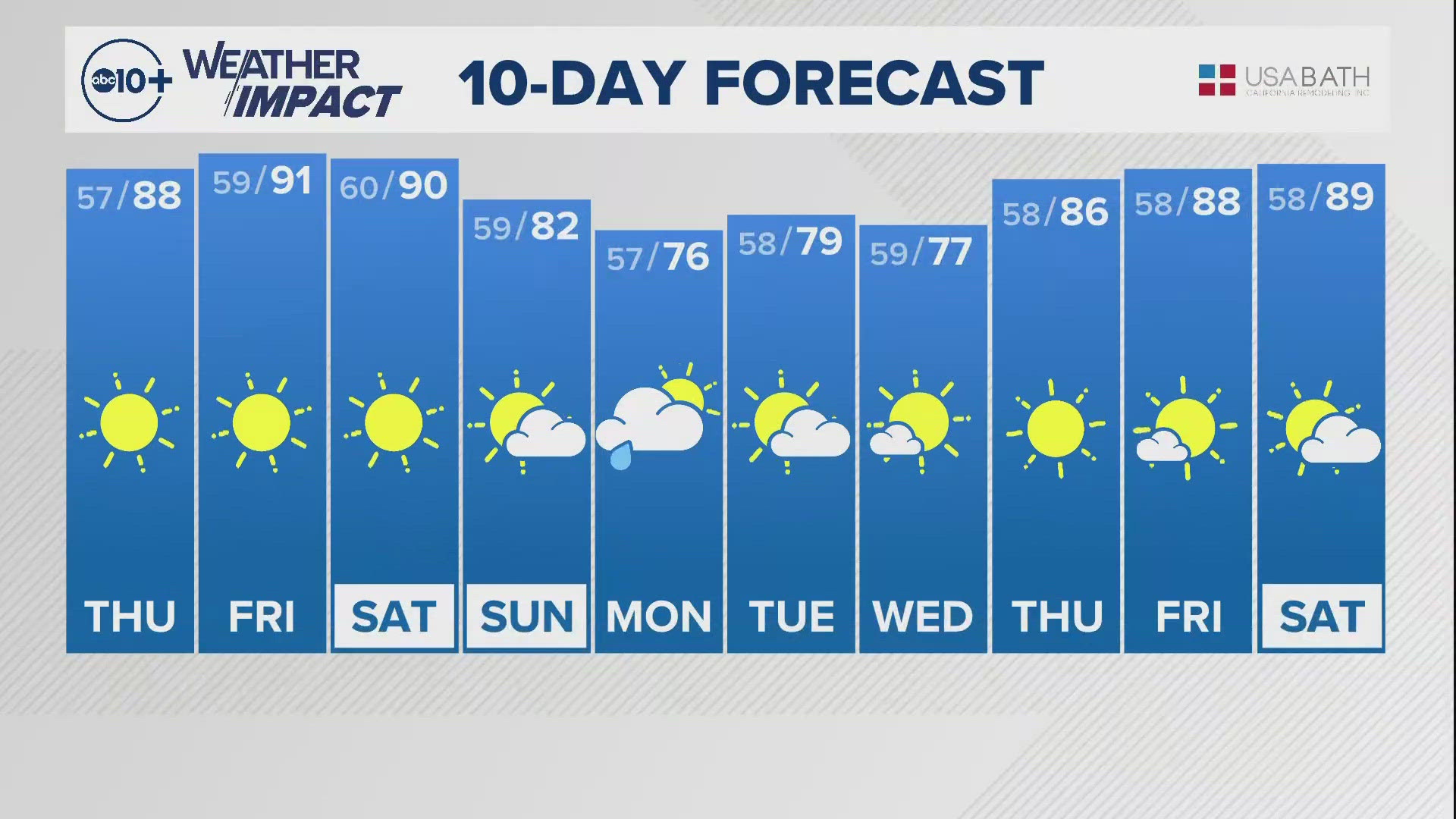Winter storms and heavy rain have missed California for years and while water in the drought-stricken state is necessary, it's raising concerns.
Following the recent storms, flooding became an issue. While Sacramento isn't under immediate flood danger, ABC10 received a number of comments from local residents wondering why their basements were flooding and where this water is coming from. Could the flooding be due to groundwater?
To understand what is happening beneath your home, it's a good idea to break down some terms.
Water tables, groundwater and aquifers:
Below a certain depth, the ground, if permeable enough to hold water, is saturated with water. The upper surface of this saturated zone is called a water table. The saturated zone below the water table is called an aquifer, and aquifers are basically big store houses of water. This water, or groundwater, would have to seep up through the water table and come up to the surface in order to reach a home.

While rainfall that lands on ground surface can creep down below the water table and recharge groundwater, groundwater levels don't rise and fall equally across an entire basin, according to Lauren Bisnett, spokesperson for the California Department of Water (DWR).
Storms may help groundwater recharge, but "recharge does not always have an immediate effect from increased precipitation and snowpack like rivers, streams reservoirs, and lakes can experience." Bisnett explained through email.
Groundwater levels depend on variables such as aquifer materials and an aquifer's ability to transmit water, as well as the depth of groundwater and how much water is being pumped from wells.
These variables are different depending on location.
Should Sacramento worry about groundwater levels?
The short answer is no.
Sacramento residents shouldn't be concerned about groundwater in their homes, according to Rhea Salvador, spokesperson for the City of Sacramento.
"The City does not have areas that are prone to ponding from either groundwater or levee seepage." Salvador explained via email. "When there is seepage, the water emerges, then flows back to the drainage system, and is conveyed away. "
Groundwater always rises adjacent to the levees when the rivers are up, according to Salvador.
She added, City Utilities weren't aware of any issues due to high groundwater.
So if it's not groundwater, where is the rising water coming from?
It's safe to say the water seeping up into some Sacramento residents' basements is likely due to saturated soil and a rising water table.
Water tables can rise above the foundation of a home after a lot of rain.
Keep in mind, groundwater is water sitting below the water table. What's happening is, soil above the water table became too saturated, too fast, following the recent storms.
The rainwater collected too quickly to seep down below the water table and had to go somewhere, so it went up.
The solution? Look into a sump pump.
A number of ABC10 online comments mentioned the use of a sump pump following the heavy rain fall.
A sump pump is a pump used to remove accumulated water and is usually installed in the basement of a home. Sump pumps are used where basement flooding happens regularly and to solve dampness where the water table is above the foundation of a home.
"I'm not going to say everyone in Sacramento should get a sump pump but they should certainly have an inspection of their basement." said Jim Owen, general sales manager at Bonney Plumbing, Heating and Air.
Following the recent storms, Owen said Bonney received "a ton of calls" from residents in the Sacramento area with concerns about their existing sump pumps, as well as some asking for new sump pump installations.
If a basement is made of concrete, water may help fortify the concrete but standing water causes other issues, such as mold and algae, according to Owen.
It's important to note, over time, water seeping through a concrete foundation can slowly erode a foundation and lead to costly repairs, according to Nusite Waterproofing.
Concrete acts like a natural wick, when there's water in the area it sucks it up and can cause long-term problems.


